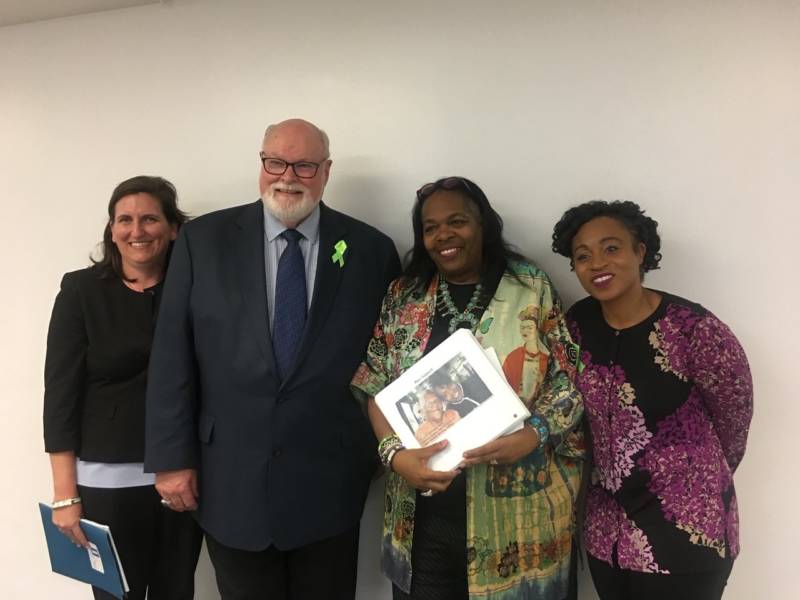It’s often a turning point, when patients begin to believe that the system can help them. It makes them more engaged in their care: taking their medications, showing up to appointments, and staying out of the hospital, Myrick said.
More than 6,000 peer specialists already work in hospitals and clinics throughout the state, but informally. California is one of two states in the country — the other is South Dakota — that does not have a formal peer certification and training program in operation or in planning.
California’s Senate Bill 10 would establish formal standards for the job, creating a career path for people with mental illness to become counselors, and earn more stable wages. It would also allow the state to draw down federal funds to pay for some of the services provided by the peer counselors.
The bill passed the Legislature unanimously last week, but whether the governor will sign it into law is still an open question. This is the third try for this bill.
“We never had any opposition in the legislature — unanimous every time,” said Adrienne Shilton, government affairs director for the Steinberg Institute, an advocacy group that backed the bill all three times.
The opposition comes from the state’s Department of Health Care Services, which would be charged with running the program and setting up the administrative systems to bill through Medi-Cal, the state’s health coverage for low-income Californians. DHCS estimates it would cost $3.8 million to set up the program, and $6.8 million annually after that to run it.
The agency opposed the same bill last year, and Governor Jerry Brown vetoed it. He said peer counselors are already working without a certificate, and there’s no need to impose a costly new program just to give them one.
“It’s just a piece of paper,” said Camille Giglio, director of the California Right to Life Committee, which opposes the bill, mainly for fiscal reasons. “You're going to go in and say, ‘Gee, I was here once. I feel your pain.’ It doesn't mean anything. It's just a piece of paper.”
Giglio’s group is also concerned that if SB 10 is signed into law, other peer counselors and volunteers, like those that work at pro-life crisis pregnancy centers, could later be required to undergo certification, as well.
“If you can’t do anything to help your neighbor unless you’ve got a certificate, what’s happened to the role of the citizen as volunteer?” Giglio said.
Supporters of the bill hope the current administration will see things differently than the past administration. The head of the Department of Health Care Services, Jennifer Kent, recently resigned and is leaving at the end of this month. And Gavin Newsom is now in the governor’s mansion.
“I think the tide is changing,” Shilton said. “Here now is a governor who has demonstrated a commitment to mental health and substance use, and demonstrated that through investments, not just through words. So we're feeling optimistic that this is our year.”
It’s been 15 years since Keris Myrick first became a peer specialist, and now she manages a team of them as the chief of peer services for the Los Angeles County Department of Mental Health.
She says keeping her mind engaged on this work, helping other people, is what keeps her own recovery on track. It keeps her out of the hospital and it keeps her voices quiet. She still hears them sometimes. But they’re sweet, she says, almost angelic, and they don’t bother her.
“Sometimes they sing to me,” she said.
